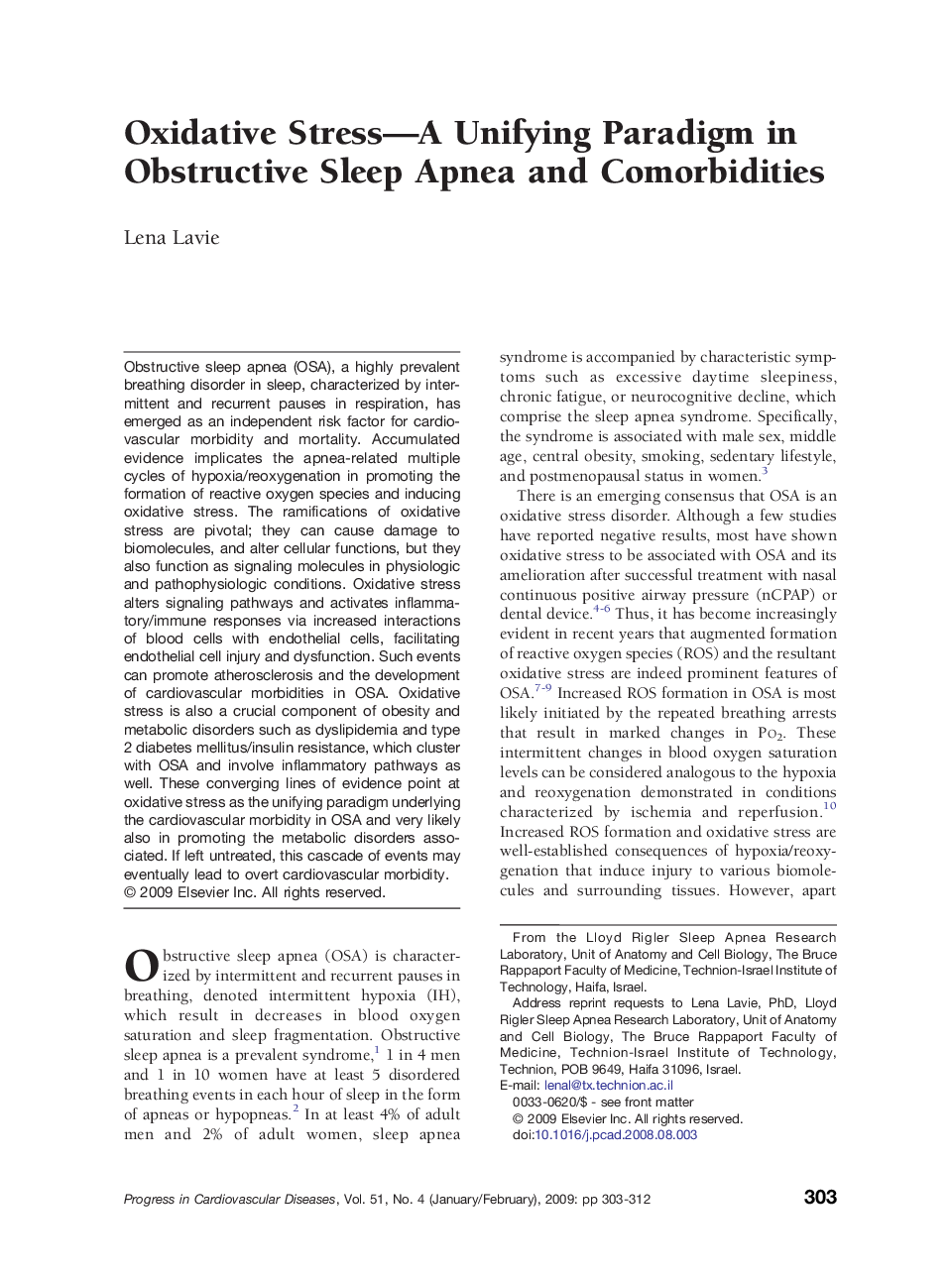| Article ID | Journal | Published Year | Pages | File Type |
|---|---|---|---|---|
| 3006993 | Progress in Cardiovascular Diseases | 2009 | 10 Pages |
Obstructive sleep apnea (OSA), a highly prevalent breathing disorder in sleep, characterized by intermittent and recurrent pauses in respiration, has emerged as an independent risk factor for cardiovascular morbidity and mortality. Accumulated evidence implicates the apnea-related multiple cycles of hypoxia/reoxygenation in promoting the formation of reactive oxygen species and inducing oxidative stress. The ramifications of oxidative stress are pivotal; they can cause damage to biomolecules, and alter cellular functions, but they also function as signaling molecules in physiologic and pathophysiologic conditions. Oxidative stress alters signaling pathways and activates inflammatory/immune responses via increased interactions of blood cells with endothelial cells, facilitating endothelial cell injury and dysfunction. Such events can promote atherosclerosis and the development of cardiovascular morbidities in OSA. Oxidative stress is also a crucial component of obesity and metabolic disorders such as dyslipidemia and type 2 diabetes mellitus/insulin resistance, which cluster with OSA and involve inflammatory pathways as well. These converging lines of evidence point at oxidative stress as the unifying paradigm underlying the cardiovascular morbidity in OSA and very likely also in promoting the metabolic disorders associated. If left untreated, this cascade of events may eventually lead to overt cardiovascular morbidity.
